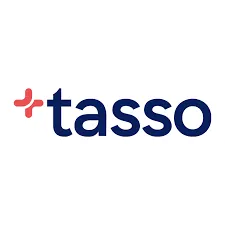
Tasso and SheMed Partner to Deliver At-Home Blood Testing for Safer, Personalized GLP-1 Treatments in the UK
In a move that could transform how women access and experience weight loss treatments, Tasso, Inc., a U.S.-based leader in patient-centric blood collection technologies, has joined forces with SheMed, a women’s healthcare company headquartered in the UK. Together, the two organizations are pioneering a model that integrates at-home diagnostic testing with personalized GLP-1 therapy, designed to provide women with safer, more tailored treatment pathways while eliminating many of the traditional barriers to care.
The partnership leverages Tasso’s Tasso+ blood collection device—a compact, virtually painless, lancet-based tool designed for use at home—to support SheMed’s comprehensive testing program. Before any patient begins GLP-1 treatment, SheMed requires a full laboratory screening. With the device, women can now complete this critical first step without ever leaving their homes. The initiative has already reached thousands of women across the UK, highlighting its potential to redefine standards for personalized obesity care.
A Long-Standing Gap in Women’s Healthcare
One of the driving forces behind this collaboration is the recognition of persistent inequities in healthcare research and delivery. Historically, women have been underrepresented in clinical trials, with much of modern medicine developed based on male physiology and health outcomes. This gender gap has led to a “one-size-fits-all” treatment model, which often fails to account for the complex hormonal, metabolic, and physiological differences that influence women’s health.
This issue is particularly relevant in the case of GLP-1 receptor agonists, a class of therapies that includes semaglutide and similar medications. These drugs have become a cornerstone of modern weight loss management, offering transformative results for many patients. However, without adequate baseline health testing, women may begin treatment without understanding the risks that certain pre-existing conditions could pose. Inadequate screening increases the chance of side effects, complications, or suboptimal outcomes—issues that personalized diagnostics can help to prevent.
SheMed’s Mission: Empowering Women Through Accessible Care
For Olivia Ferro, CEO of SheMed, the collaboration is an extension of the company’s founding philosophy: putting women at the center of their own healthcare journey. Ferro explains that many women feel left behind by traditional medical systems, either due to limited access, lack of tailored treatment, or anxieties associated with clinical environments.
“For too long, women have been left out of the conversation when it comes to clinical care,” Ferro said. “At SheMed, our mission is to empower women to take control of their health through safe, accessible, and personalized treatment. Tasso gives our customers access to high-quality at-home blood testing, allowing us to deliver care that meets women where they are.”
SheMed’s patient pathway begins with the Tasso+ device. Once ordered, patients receive a kit in the mail and follow simple instructions to collect their blood sample in less than five minutes. The device uses a virtually painless microfluidic lancet system, designed to reduce the discomfort and anxiety commonly associated with traditional venipuncture blood draws. This matters deeply: surveys show that 78% of patients report anxiety around conventional blood tests, and 69% would not travel more than 10 miles for lab testing. By removing these hurdles, SheMed ensures that more women can comfortably and confidently complete the essential screening step.
The Role of At-Home Diagnostics in GLP-1 Therapy
The blood samples collected are analyzed for a broad panel of health markers, including:
- Diabetes risk indicators such as fasting glucose and HbA1c levels.
- Cardiovascular health markers, including cholesterol and triglycerides.
- Liver function enzymes to identify risks of hepatotoxicity.
- Thyroid activity levels, which are especially important in women given the higher prevalence of thyroid disorders.
What SheMed has uncovered so far is striking: 99% of women tested show at least one out-of-range result in their initial screening. These findings highlight the importance of blood diagnostics in GLP-1 therapy, as they uncover conditions that may have otherwise gone unnoticed before treatment.

With this data, SheMed’s clinical team can personalize treatment plans, tailoring dosage, monitoring strategies, and lifestyle recommendations to each individual’s needs. Furthermore, by tracking these markers over time, SheMed can adjust treatment as necessary, improving both safety and effectiveness.
A Patient-Centric Technology from Tasso
At the heart of this program is Tasso, Inc., a Seattle-based health technology company that has spent the last decade refining its patient-friendly blood collection devices. The company’s mission is to simplify access to essential health data, particularly for populations who may struggle with clinic-based care.
“Simplifying blood collection and expanding patient access to essential health data is at the core of our mission at Tasso,” said Ben Casavant, PhD, CEO and Co-Founder of Tasso, Inc. “Our UK collaboration with SheMed is a powerful example of how patient-centric innovation can close long-standing gaps in care and give individuals more control over their health.”
The Tasso+ device has applications beyond obesity and weight management. Its ease of use has made it attractive for a variety of chronic disease management programs, decentralized clinical trials, and preventive care initiatives. By integrating such technology into everyday healthcare, companies like Tasso are helping to decentralize medicine and shift more responsibility—and more power—into the hands of patients.
Closing the Gap Between Innovation and Access
While GLP-1 therapies have become one of the most talked-about medical innovations in recent years, access remains a challenge. Cost, supply shortages, and fragmented care models have prevented many patients from benefiting fully from the therapies. By embedding diagnostics at the front end of treatment, SheMed is not only helping women start therapy safely but also enabling them to achieve better long-term results.
The collaboration with Tasso also addresses a cultural barrier: the notion that women must adapt to healthcare systems rather than healthcare adapting to women’s needs. By offering at-home testing, personalized care, and ongoing monitoring, SheMed and Tasso are actively reversing this paradigm.
Scaling a New Model of Care
As the program grows, both Tasso and SheMed anticipate broader applications. At-home blood testing could extend into reproductive health, menopause management, cardiovascular disease prevention, and diabetes care—all areas where women face significant unmet needs.
The model may also serve as a blueprint for other regions, particularly as healthcare systems worldwide grapple with overburdened clinics and increasing demand for personalized medicine. By showing that remote diagnostics can be seamlessly integrated into treatment programs, the partnership demonstrates a scalable way to combine technology, access, and safety.
The collaboration between Tasso and SheMed is more than a partnership—it represents a cultural shift in women’s healthcare delivery. By merging advanced at-home diagnostics with the growing field of GLP-1 therapies, the two organizations are creating a safer, more inclusive, and patient-driven care model for women in the UK.
For the thousands of women who have already benefited, the message is clear: personalized healthcare is not a privilege, but a right. And with partnerships like this, the vision of healthcare that truly meets women where they are is closer to becoming the new standard.
To learn more about how SheMed’s Tasso-powered program is helping women take charge of their health with clarity and confidence, visit shemed.com/blood-test.





